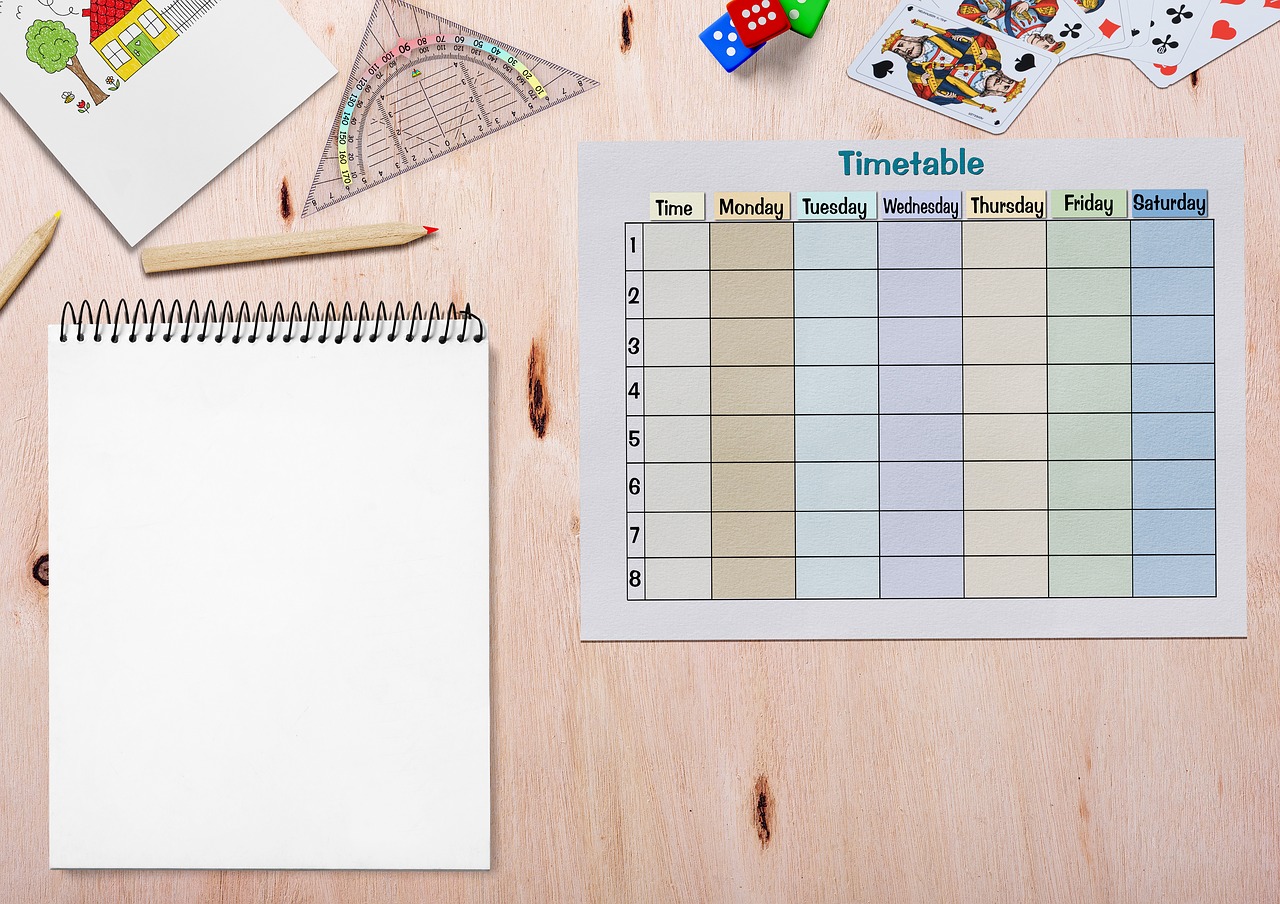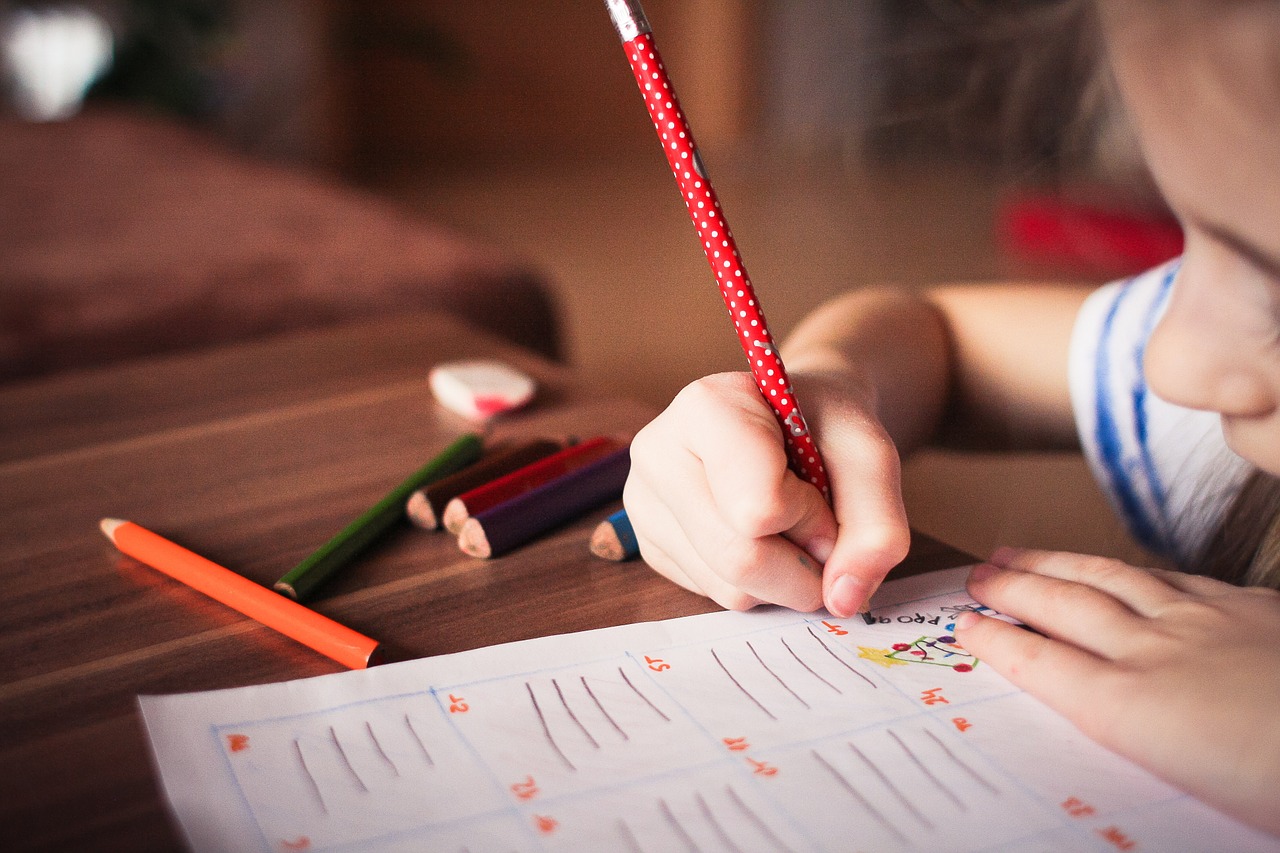Having trouble getting your kids to study? Well, concentration is a skill that can be honed with practice.
Getting your child to start early when it comes to activities that require concentration is a great way to develop a lifelong habit that would take him or her very far in life.
Children are naturally very curious and energetic. When combined, these traits can become barriers to accomplishing specific tasks.
For example, did you leave your child at the study table and then came back to find he’s suddenly more interested in the fish tank?
Since practice makes perfect, we have compiled 11 effective tips to get your children to focus more and ensure he or she can get into the habit of achieving goals on time.
Say No To Gadgets
You might be tempted to hand over the latest gadget to your child as a distraction. But, think again!
The hyperactivity of children together with their parents’ busy schedule means parents are always looking for the next best way to keep them engaged.
Studies revealed that gadgets actually lead to a shorter attention span and memory power in children.
Instead, parents are encouraged to let children play with regular toys to enhance their attention, memory, and focus.
Games such as Scrabble are a great way to increase concentration. The upside to playing this game is that your children can improve their vocabulary outside of school.
It is both an entertaining and educational experience. This also hones their memory power as the words they get wrong or right stay with them.
Playing jigsaw puzzles or card games are also good ways to spend leisure time. To put the picture right back together, your child would need a lot of focus.
Furthermore, the numbers on the cards would also help him remember his numbers.
On the other hand, a gadget wouldn’t let him have the same experience. Instead, it’ll cause added pressure from eye strain.
If your child has problems concentrating, play sequencing games with him. Ask him to alphabetically arrange word blocks or follow a recipe to help make a dish.
Sequencing activities facilitate concentration. Another interesting game that does wonders for concentration is the sit-on-a-chair-as-long-as-possible game. No fidgeting or moving allowed.
Through playing, the mind can be centred on the act of sitting still. This greatly improves concentration.

Keep Their Study Environment Distraction-Free
To make the most of study time, you must optimise your child’s surroundings. This varies as every child is different.
Some children require pin-drop silence while others cannot study without the soothing hum of instrumental music in the background.
Do make sure to remove every trace of electronics from the room. No mobiles, tablets, TV or laptops.
If the computer is needed for study purposes you can install apps that can for a specified amount of time prevent access to all websites except a select few.
The study table should be equipped with only what will be needed during the study sessions.
Ensure there are sharpened pencils, books, erasers, sharpeners and a large water bottle. Getting up too frequently to get his things will break concentration.
A Diet Full of Greens is a Must
Children have a fascination for all things sugar and sweet. While it is okay to treat them once in a while, sugar, however, has a lot of negative effects.
In children, it can cause hyperactivity and repeated intake could lead to obesity. This can thwart your child’s concentration power.
Recent statistics in the USA revealed that children have drastically increased their consumption of coffee. This gives them a large dose of both caffeine and sugar which in turn leads to excessive energy.
Thus, it is extremely important to balance children’s sugar intake and incorporate plenty of greens in their diet.
Protein-rich foods like beans, lean meat, lentils keep their brain active and more focused.
This is supported by a UK study which revealed that eating toast and baked beans for breakfast increases cognition.
Antioxidants present in green food also keep the brain healthy and boosts its power.

Adhere to a Consistent Routine
Routines are essential to every individual’s life. A good routine allows for work to be done and ensures plenty of leisure time to recharge.
Although parents don’t have to follow strict routines, even a flexible one will provide balance in the child’s life.
It also encourages the development of time management skills.
Your child’s brain gears into study mode when they consistently follow a time set aside for studying approaches. This improves concentration.
Allow for Frequent Breaks Between Study Sessions
The average time that an adult can concentrate on a task is about 42 minutes. For children, the amount of time is even shorter.
To force a child to sit at the study table for hours would never improve productivity. Instead, allow for short, frequent breaks.
A 15-minute break after a 30-minute study session should be set aside.
The child can engage in some sort of physical activity. This can help children shed the excess energy and focus better.
According to research, physical activity is proven to aid the mind in activities that require focus.
Blood flow to the brain greatly increases from exercise thus providing more nutrients and oxygen that boosts brain power.
Allocating a certain amount of time, suppose, 30 minutes to studying 2 pages will enhance concentration.
Reaching the goal motivates them further to come back after the break to study again.
Be aware that placing time limits can put unnecessary stress on some children. Additionally, an hour-long rest after school refreshes the mind.
The child can then begin studying with greater concentration.
Hunger, restroom breaks etc. should all be dealt with before the session can begin as repeatedly leaving the table can cause the child to lose concentration.
Break up Large Tasks into Simpler & Smaller Parts
Tackling a large task can be intimidating and the child may also be reluctant to go through with it.
The best way to encourage the child to undertake the task is to break it up into smaller pieces.
Smaller parts simplify a large, complicated task. Finishing the smaller task produces a sense of accomplishment in the child.
He or she becomes motivated to do more as the goal starts seeming achievable.

Determine Your Child’s Learning Method
Learning styles aid your child to retain whatever he or she has been studying. However, they vary depending on the child. There are 3 major kinds of learning styles:
Is It the Visual Method That Appeals to them?
Children with this learning style require reading the text and maybe writing it down.
Creating flashcards for learning spellings or showing them pictures of the study matter can help cement the information in your child’s brain.
Ask your child to draw what they’ve learned. This has the added advantage of tuning his fine motor skills as well as enhancing memory.
Sometimes you may catch children drawing scribbles in their notebooks. Although it may seem nonsensical, doing this actually helps them recall whatever they have learned earlier on.
Is It the Auditory Method That Appeals to them?
Reading aloud the text or listening to audiobooks facilitate information retention in children suited to this method. You can even provide soft music in the backdrop to aid their learning process.
Is It the Kinesthetic Method That Appeals to them?
Children who prefer this method are into the practical aspect of studying. They learn better when they can see what they have been studying in action.
For example,
- When studying math, your child can be given 3D models of geometric shapes to help him grasp the subject matter.
- Carrying out motion related physics experiments will embed the concept in his mind
Preparation is Key
Start preparing for the next task beforehand. Let your child know sometime before the completion of the previous task when it’s time to stop doing something.
This allows them time to transition. If the previous task was something they like doing, there would be an automatic reluctance to immediately stop doing it.
Reward Them For Task Completion
You can reward your children for good work. Give them an hour of TV, computer games or a delicious treat. The promise of a reward will motivate them to finish tasks.

Plan Tasks So That Energy Levels and Task Difficulty Correspond
Tasks that require the greatest concentration can be incredibly draining. Mornings are usually the times when children have the highest level of energy.
Plan tasks so that the most demanding tasks are done when energy levels are highest. The child would be more reluctant to tackle a difficult task when he/she is tired.
Switch to lighter, less complex tasks towards the end of the day when energy levels are low.
Combine Breathing Exercises with Imagination
If your child is still struggling with concentration issues, set aside this simple exercise. Sit him down in a relaxing environment and ask him to take long, deep breaths.
Tell him to imagine all the things that have been distracting him and to identify them.
Guide him to identify the source of the distraction and ask him to provide solutions to the problem. What would he do to help himself focus? This creates self-awareness and stimulates thinking.
Conclusion
Despite the fact that elevated energy levels may interfere with concentration related activities, children can be taught to rectify this.
This is why concentration is a skill and not an inborn ability. With continued practice, children can learn to balance both traits.
Hopefully, following the above tips can instil this art into your child’s conscience. Best of luck!

